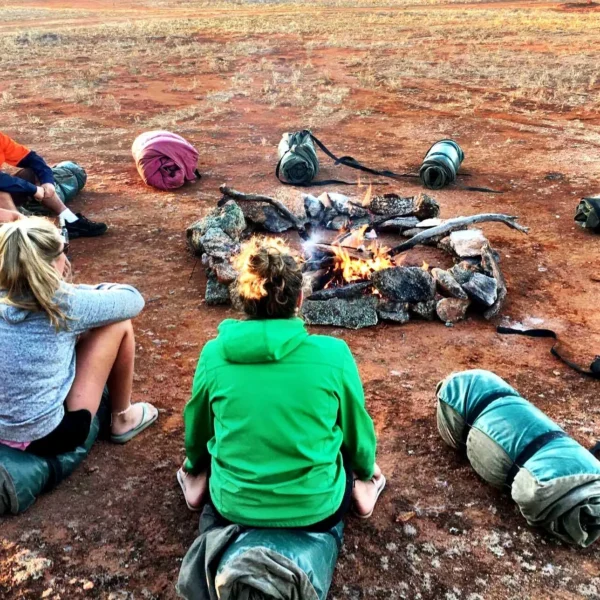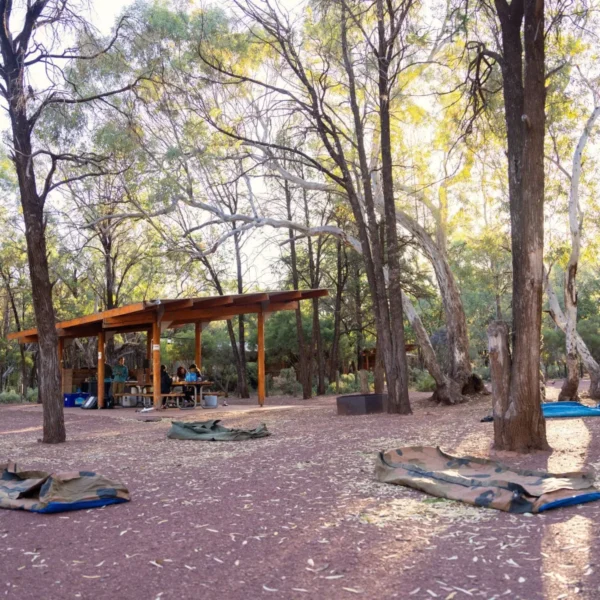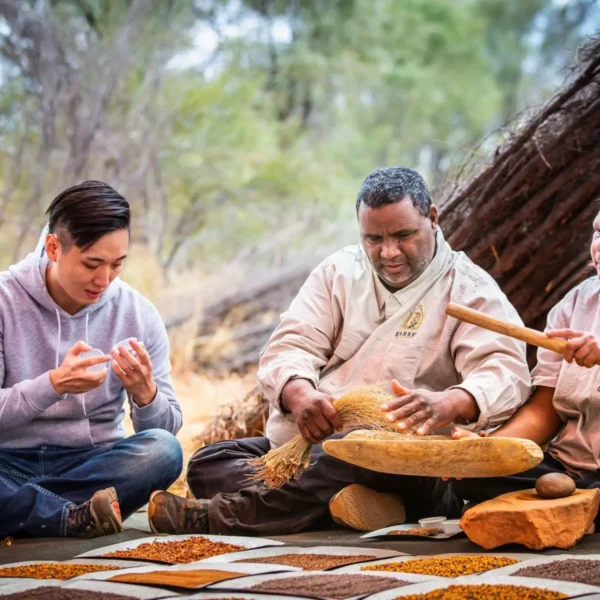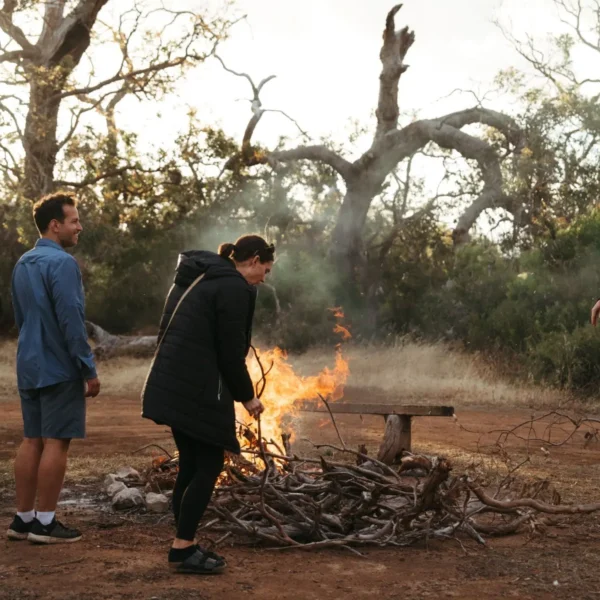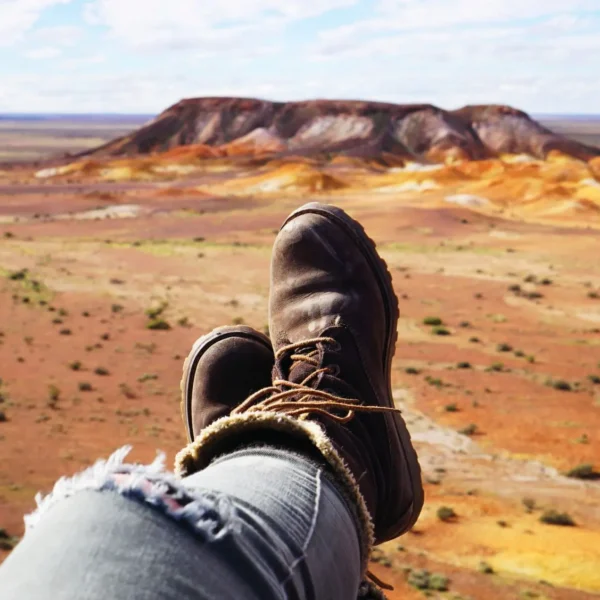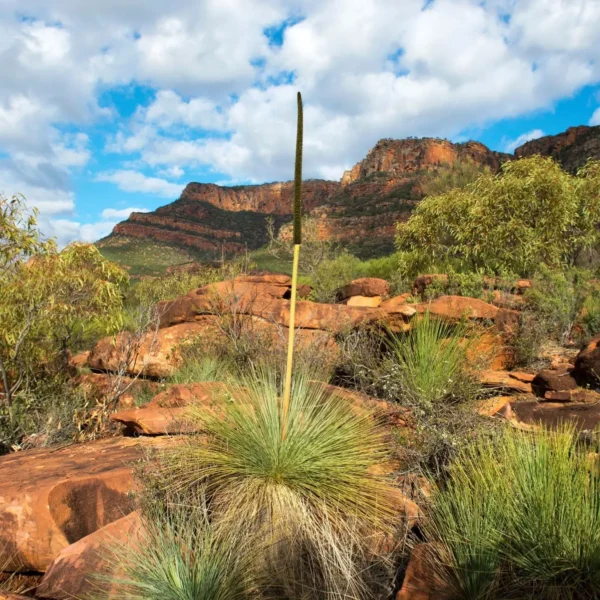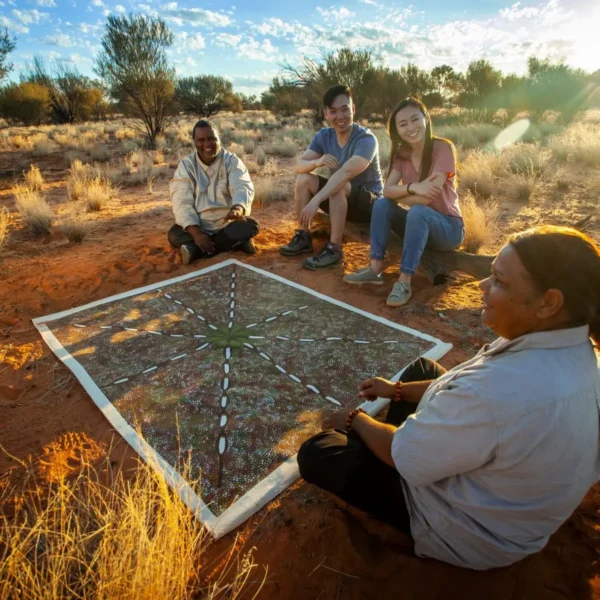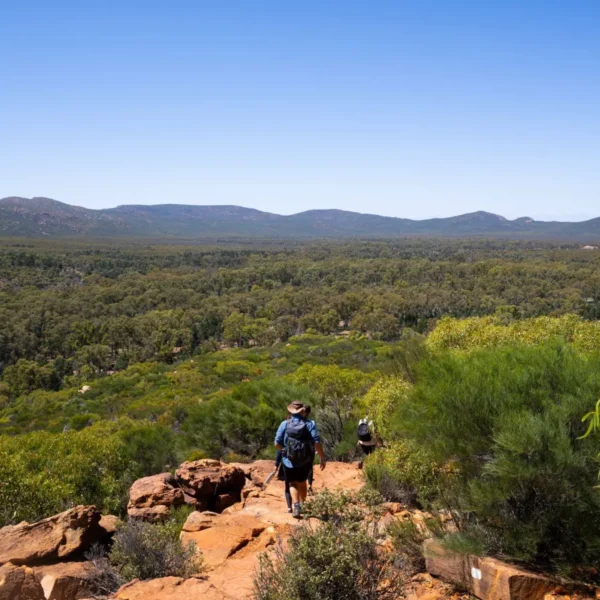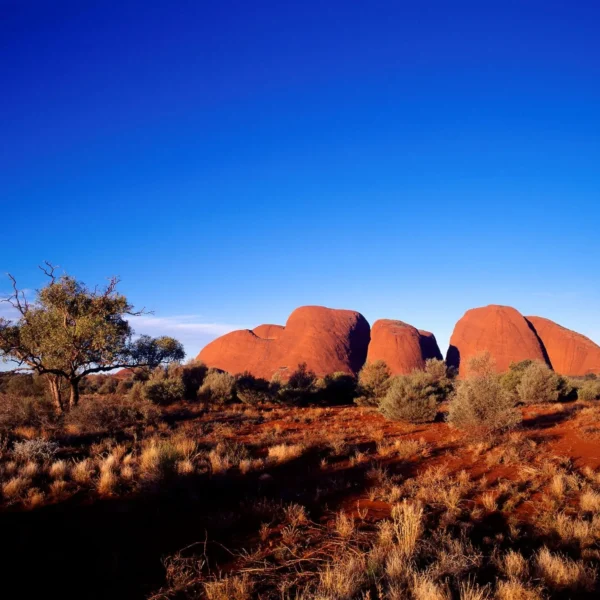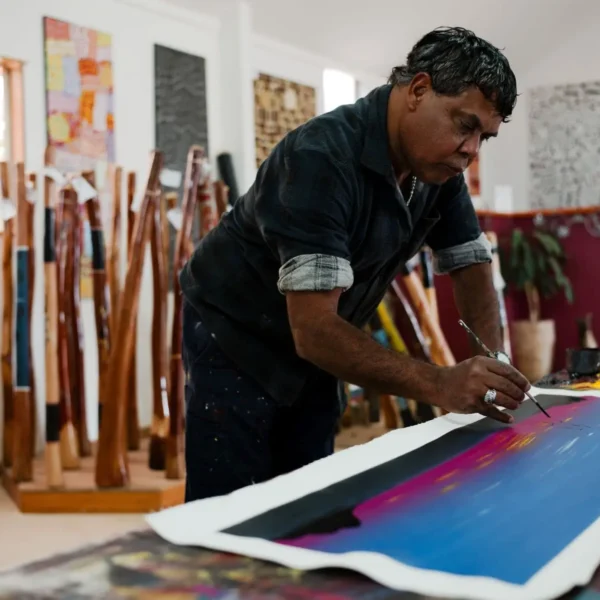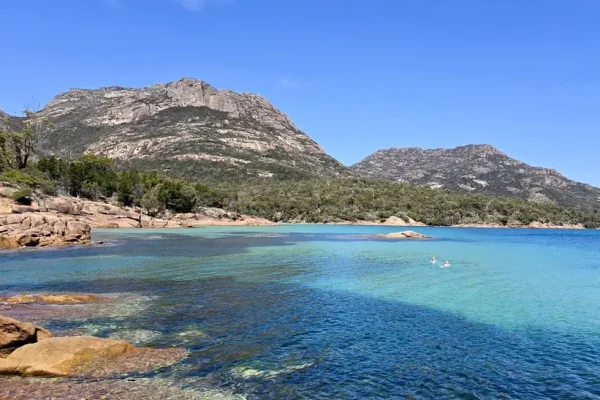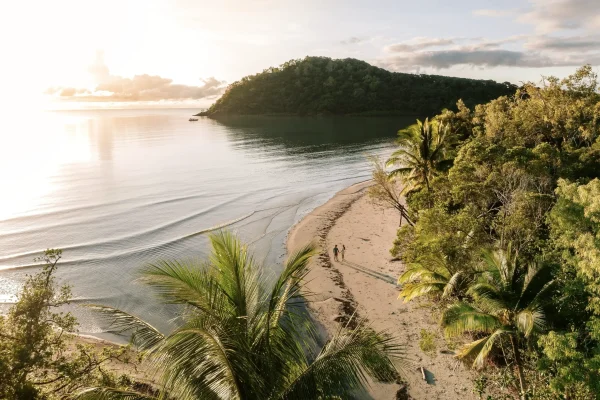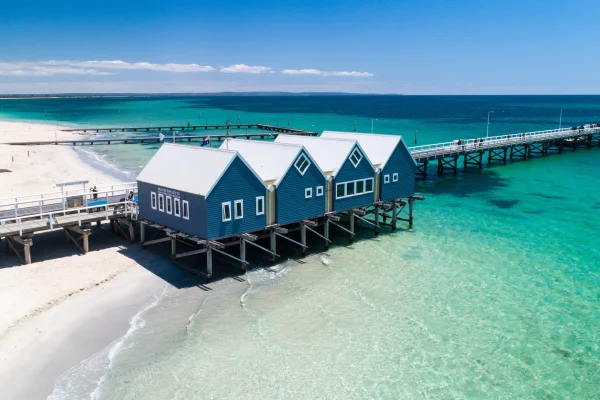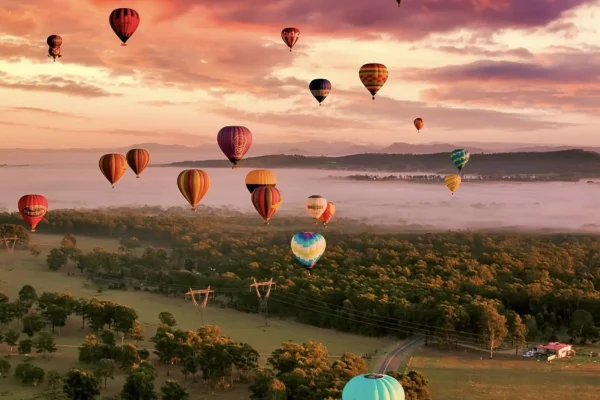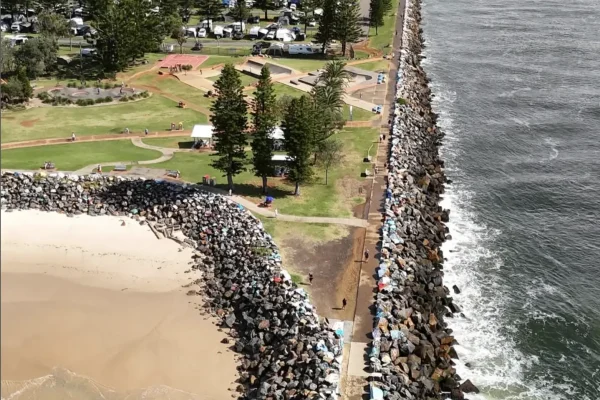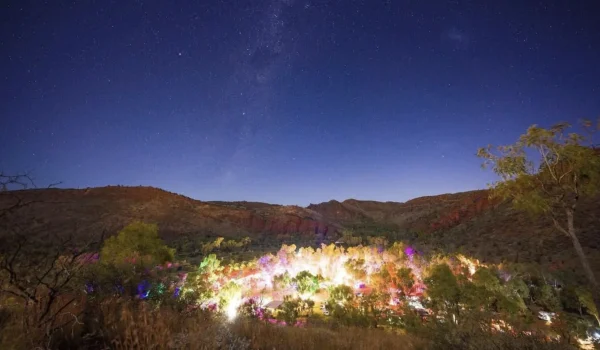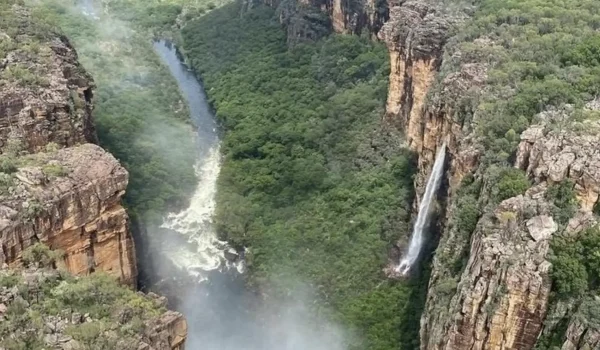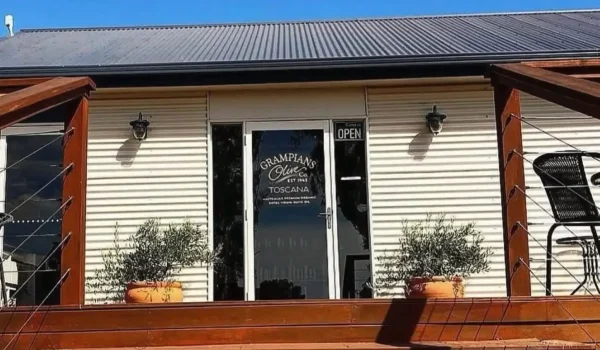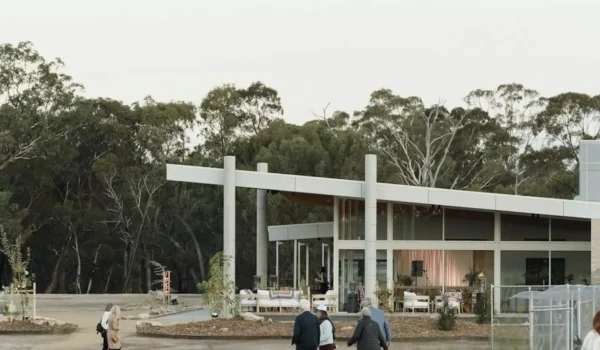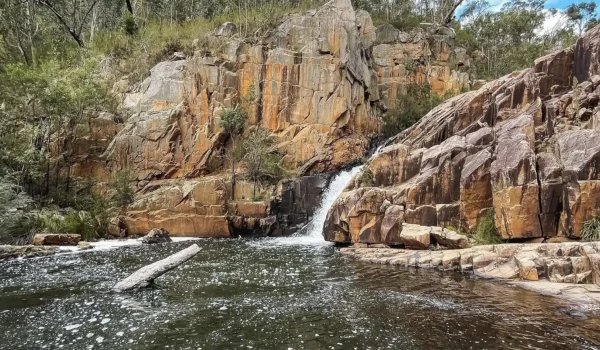Highlights
- Hike to Arkaroo Rock to see 5,000-year-old Aboriginal rock art
- Trek epic trails through the ancient Ikara–Flinders Ranges National Park
- Watch sunset over Wilpena Pound with charcuterie and a sky full of stars
- Fossick for opals and sleep underground in the quirky desert town of Coober Pedy
- Conquer the legendary Kings Canyon Rim Walk and soak in its dramatic vistas
- Stand in awe of Uluru
- Wander through the sacred domes of Kata Tjuta
- Add a magical touch with an optional experience at Uluru’s Field of Light
Inclusions
- Accommodation 5 x nights swag camping with amenities 1 x night underground multi-share dormAll activities and experiences
- Meals as listed (6 breakfasts, 3 dinners)
- All national park and entrance fees
- Storyteller Guide Air-conditioned vehicle
OPERATES
| MON | TUE | WED | THU | FRI | SAT | SUN |
| ⚫ |
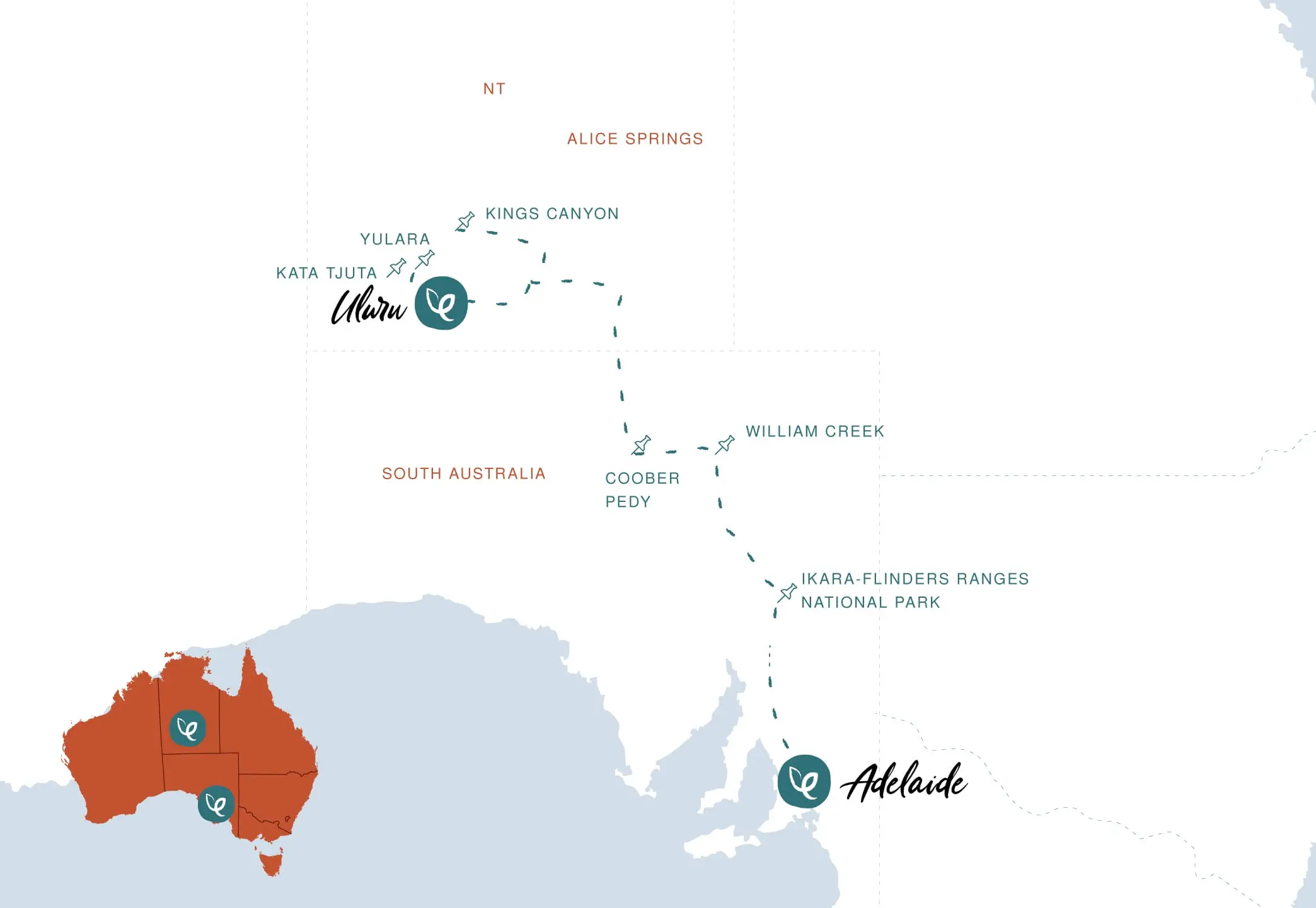

Itinerary
Day 1: Adelaide to Ikara Flinders Ranges
Day 2: Ikara Flinders Ranges National Park
Day 3: Flinders Ranges to Coober Pedy
Salt Flats to Subterranean Sleepovers
Farewell the Flinders Ranges as we head deep into the South Australian outback. After a quick refresh and snack stop in Port Augusta, we cruise north through saltbush plains and wide-open nothingness, the kind that makes you feel like you’re driving on Mars. Midway, we pull up at Lake Hart, a surreal salt lake where white stretches to the horizon and the silence feels otherworldly. It’s a chance to stretch your legs, snap some lunar-level photos, and breathe in the stillness. By late arvo, we roll into Coober Pedy, the underground opal capital of the world. First stop? The Old Timers Mine for a crash course in outback bling. Learn how opals are formed, walk through original underground homes, and go ‘noodling’ , fossicking for stray gems in the red dust. Who knows? You might just get lucky. Check in to your underground digs at Radeka Downunder, where the rooms are carved into the rock to escape the desert heat. The night’s yours to explore this weird and wonderful town. Pizza in a cave, underground bars, moonlit strolls, it’s all on the table.
Accommodation: 5-share dorm at Radeka Downunder
Meals: Breakfast
Distance Travelled: Approx. 620 km
Day 4: Coober Pedy to Watarrka/Kings Canyon
Lunar Landscapes & Desert Skies
Buckle up, today’s a big one. We head north through a whole lot of red dirt and big sky, cruising past the Dingo Fence (yes, the world’s longest dog barrier) and into Kanku– Breakaways Conservation Park, an ancient Aboriginal heritage site where the Moon Plains live up to the name. Think wide-open space, sci-fi scenery, and silence that hums. From here, we cross the border into the Northern Territory, chasing the heat shimmer to Watarrka National Park, home of Kings Canyon. By late afternoon, we roll into Kings Creek Station, our desert base for the night. Cool off in the pool, wander the red dirt trails, or kick back with a cold one and watch the outback do its golden hour thing from the sunset platform. Dinner is at the Station’s laid- back eatery before we settle in for a well-earned rest under star-soaked skies.
Accommodation: Swag camping with amenities at Kings Creek Station
Meals: Breakfast
Distance Travelled: Approx. 770 km
Day 5: Watarrka/Kings Canyon to Uluru
Day 6: Uluru
Day 7 | Uluru & Yulara
The Main Event
Wake early and watch the desert come alive as the sun rises over Uluru. The light show is unreal. Shifting colours, long shadows, and that quiet magic only this place can deliver. Then it’s time to get up close. Standing 348 metres high and estimated at 550 million years old, Uluru is a presence. The 10 km guided base walk is your opportunity to connect. Wander past waterholes, into shaded gullies, and along ancient rock faces etched with meaning. Rest beneath Sheoak trees, peer into sacred caves, and hear the stories that shape this land. Prefer a slower pace? No worries, shorter walks are available too. By late morning, we return to Desert Gardens Resort in Yulara, where this wild journey officially ends. For those departing from Uluru Airport, complimentary transfers are available from the resort. There are also bus transfers from Yulara to Alice Springs. See the Know Before You Go information below to learn more.
Meals: Breakfast
Distance Travelled: Approx. 60 km
Know before you book
Alice Springs Connecting Transfers
- AAT Kings operates transfers from Uluru to Alice Springs, departing from the Desert Gardens Hotel on the last day of your tour between 12:30 pm and 1:00 pm from March to November. Our tour finishes in the late morning on day seven, so our guide will ensure any passengers catching this shuttle are at the departure point with plenty of time to spare. The shuttle arrives in Alice Springs at approximately 7 pm.
- The rate is currently $249pp; however, it will increase from April 2026 to March 2027 to $259pp. You can add this to your cart when making your tour booking on our website as an optional add-on.
General Information
- Tour timing: This tour starts in Adelaide on Day 1 at approximately 5:30 am and finishes in Yulara (Uluru) around midday on Day 7.
- Dietary requirements: Please let us know about any dietary needs when booking. We cater for most preferences and aim to provide fresh, varied meals. Snacks, soft drinks, and alcohol are not included.
- Luggage limits: Each guest is allowed one soft travel bag or backpack (max 15 kg) plus a small daypack or piece of hand luggage.
- Minimum numbers: This tour requires a minimum of four travellers to run. If we need to cancel due to low numbers, we’ll offer a transfer to a future date or a full refund.
- Before you book: Please read the information below and our full Booking Terms & Conditions to ensure this experience is right for you.
Itinerary Changes
- Experienced guidance: Our storyteller guides continuously assess local conditions such as weather and traffic to deliver the best possible experience.
- Dynamic weather: The Australian outback is known for sudden and dramatic weather changes. Our team remains informed and responsive to these conditions. Adjustments for safety and comfort: Itinerary changes may occur to improve the overall experience or respond to unexpected circumstances. For example, during the hotter months (October to April), hike times may be adjusted to earlier in the day to avoid high temperatures.
- Clear communication: Any itinerary changes will be communicated to the group in advance whenever possible.
Accommodation & Camping
- This is a participatory camping tour, meaning guests are expected to get involved by helping with basic tasks, such as meal preparation and packing up camp.
- Accommodation includes a mix of national parks, bush campgrounds, and one night in shared dorm accommodation in Coober Pedy. Most campgrounds offer basic toilet and shower facilities, except for Warren Gorge, which does not have showers.
- When camping, you’ll sleep in a traditional Aussie swag—a sturdy canvas bed roll with a built-in mattress, used under the stars or in wet weather tents.
- Swag Upgrade: Want a little extra comfort? You can upgrade to a deluxe double swag for $300 (sleeps up to two people). This version features a high-density foam mattress and mesh windows for ventilation. Availability is limited, and upgrades are available on a first-come, first-served basis.
- Sleeping bags: Please bring your own sleeping bag and pillow. Alternatively, you can hire a used sleeping bag for $20 during the booking process. All unused or retired sleeping bags are donated to a homeless charity, giving them a second life.
- Weather conditions: Be prepared for extreme weather, including high temperatures, cold temperatures, and exposure to the elements.
- In the event of wet weather, group tents will be provided for shared shelter.
- Should extreme weather affect the camping experience, alternative accommodation may be arranged. Any additional costs will be shared 50/50 between Untamed Escapes and guests.
Fitness & Mobility
- Fitness requirements: A moderate level of fitness is needed. On some days, you may be walking between 3 and 12 km, often on uneven ground and in hot or wet conditions.
- Mobility considerations: While there’s no upper age limit, all travellers should self- assess their mobility and comfort with activities such as hiking, swimming, and swag camping. You’ll need to be able to lift yourself from ground level, as swags are traditional ground-based bedding.
- Medical conditions: If you have any mobility concerns or pre-existing health conditions, we strongly recommend speaking with your doctor before booking. Please also inform our Customer Service Team and Guides of any relevant conditions prior to travel, so we can offer the right support.
- Fit for Travel declaration: All travellers must complete an online check-in, including a mandatory ‘Fit for Travel’ declaration, at least 24 hours before departure. This confirms you are free from illness and physically able to join the tour.
Booking
FAQ
What is the best month to visit Uluru?
The best time to visit Uluru (also known as Ayers Rock) is during the cooler months of May through September. During this period, the weather is mild and comfortable, with daytime temperatures ranging from 20-25°C (68-77°F) and nighttime temperatures dropping to 5-10°C (41-50°F). This makes it ideal for outdoor activities such as hiking, sightseeing, and enjoying Uluru’s beautiful sunrise and sunset views.
Is trip to Uluru worth it?
A trip to Uluru (also known as Ayers Rock) is worth it. It is a sacred place for the local Anangu people and is recognized as one of Australia’s most iconic natural wonders.
Is one day enough for Uluru?
Although Uluru (also known as Ayers Rock) can be visited in one day, it may not be enough time to thoroughly experience and appreciate the area. Uluru is a remote place in the Australian outback, with plenty to see and do in its surroundings.
Can you see Uluru without a tour?
Yes, it is possible to see Uluru (also known as Ayers Rock) without a tour. Uluru-Kata Tjuta National Park is open to the public and visitors are free to explore the area on their own. However, it’s important to keep in mind that Uluru is a sacred site for the local Anangu people, and visitors are expected to show respect for their culture and traditions.

